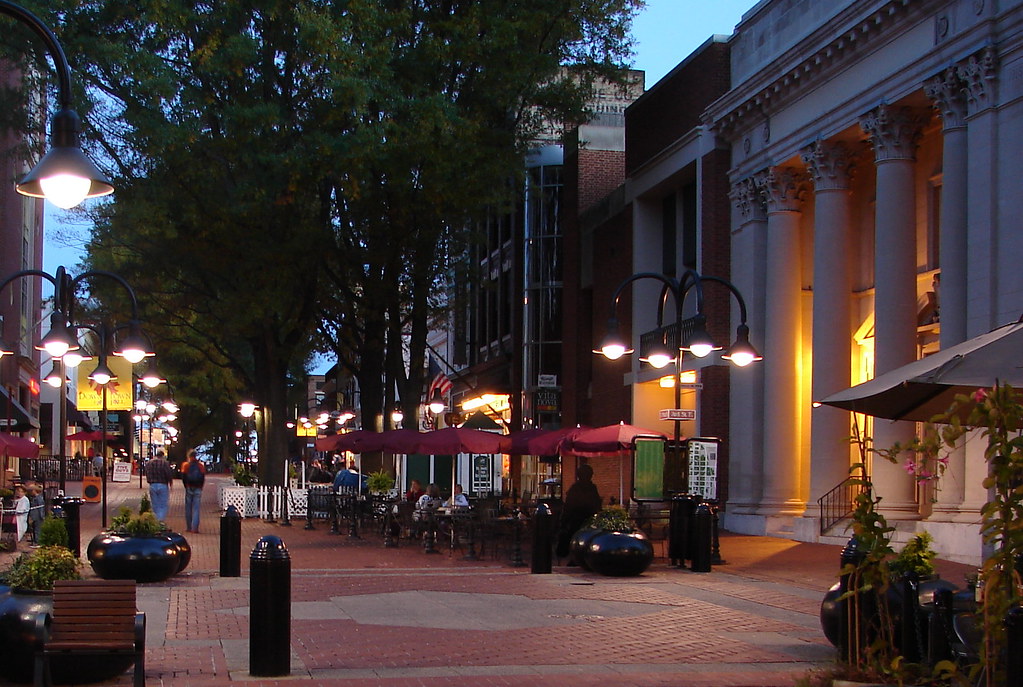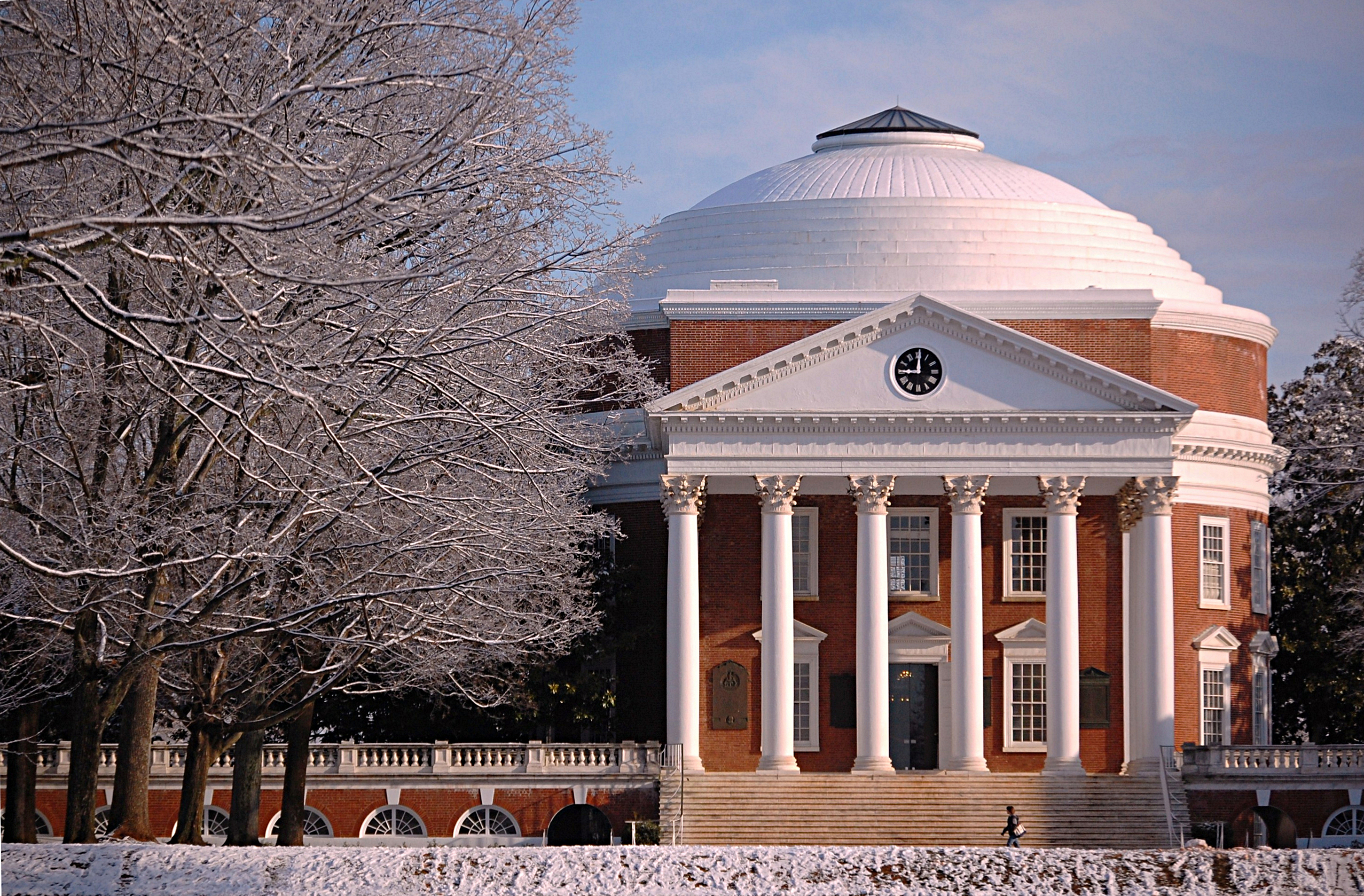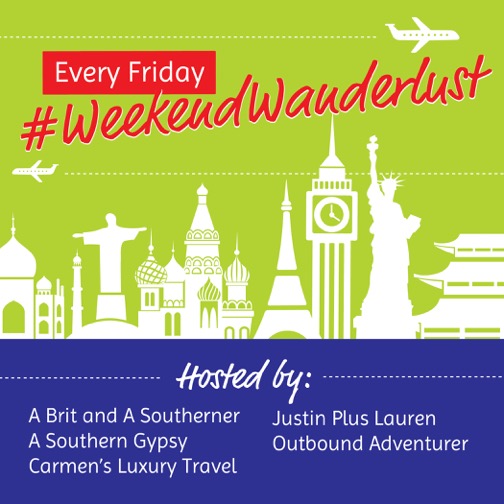What makes a place or town "quintessentially Virginian?"
Is it the
history? From
precolonial remnants to Civil War battlefields and everything in between, Virginia practically corners the market on American history. The first English colony was founded in Jamestown in 1607, and the first stirrings of revolution were vehemently debated in its churches and halls over 160 years later. The American Revolution was won in Yorktown; the Civil War ended in Appomattox. No other state has produced as many U.S. Presidents, and seven are buried on
Virginia soil. Suffice it to say, with over 2,400 historical markers dotting the landscape, you pretty much can't throw a rock without hitting something historic.
But perhaps it's the
culture which sets Virginia apart? There is an air of fulfilled living, hard work, and pride in one's heritage (even for first generational Virginians) that permeates the culture. Sipping a glass of sweet tea on the front porch rocker; crabbing among the reeds of the eastern shore; or enjoying a bonfire in the foothills of the Blue Ridge are all quintessential activities in a commonwealth which has become the gateway of the South. Work hard, but play even harder - Virginians know how to have a good time and to capitalize on all the opportunities Virginia has to offer.
While selecting an exact adjective to encapsulate Virginia may prove difficult, it is possible to recommend five* specific places and activities which, in their own unique way, showcase why Virginia Is For [Travel/History/Culture] Lovers!
Kilmarnock
Located on the
Northern Neck where the Rappahannock River meets the Chesapeake Bay, the tiny town of
Kilmarnock epitomizes the rural, salt-life culture of Virginia. Quaint boutique shops,
cozy bed and breakfast establishments, and very few chain restaurants characterize the easy-going way of life. In the height of summer you're more likely to meet your neighbors (and fellow tourists) out on the water than on land, and an autumn visit all but demands a day spent at a
local oyster festival. Leave your cell phones at home and relax by the water. This is how low-country Virginians live.
 |
| Virginia Military Institute. |
Lexington
For native Virginians, Lexington is nearly synonymous with Robert E. Lee and Stonewall Jackson, who both spent time there as professors at Washington & Lee University and Virginia Military Institute, respectively. Both generals are buried in Lexington, and there are several historical sites dedicated to them and other notables in town. But there is more to Lexington than its college institutions and history. Lexington is the perfect springboard to mountain activities. Gawk at the
Natural Bridge, formed when a cavern collapsed; stop by the cheeky
Foamhenge exhibit nearby; venture up into the
George Washington and Jefferson National Forests for fishing, hiking, or camping; or take a quick spin down the windy roads and breathtaking views of the
Blue Ridge Parkway. Lexington can provide all the amenities of a mid-sized town without undermining the mountainous beauty that rural Virginians enjoy.
 |
| Downtown Mall Charlottesville, VA. (c) Bob Travis. |
Charlottesville
Whether you're looking for history, good food and wine, or access to nature, Charlottesville has it in spades, putting its own unique twist on quintessential Virginia culture. This small town packs a big punch. Here you'll find the
University of Virginia and Monticello, one of only twenty-two UNESCO World Heritage Sites in the United States and both designed by Thomas Jefferson. Take some time to enjoy the beautifully designed pavilions and gardens flanking the Rotunda of the University.
Your time in Charlottesville should be spent exploring the southern gentry charm of Virginia, whether it be at the Foxfield Races (horses, of course) in the spring for a party atmosphere or the more family-friendly fall races, or while enjoying a glass of wine at
Barboursville Vineyards in a sundress or sports jacket. A stroll down the pedestrian-only Downtown Mall will remind you of Europe with its philosophy of a town square being a communal living room, and an excursion to the Route 29 corridor will provide a plethora of dining options, whether you're craving Italian, Mexican, French, Indian, or even Afghan cuisine. In recent years, many craft breweries have popped up in Charlottesville, but be sure to check out
Starr Hill Brewery, a local tradition.
 |
| Rotunda of the University of Virginia. Source. |
If you're craving to see the natural side of the Charlottesville area, grab your hiking shoes for an easy hike along the
Moorman River and take a dip beneath its waterfall. Or drive 20 minutes south of town to
tube the James River starting at
Scottsville and ending at the Hardware River Wildlife Management Area. Just don't forget to bring a few beers from a local brewery for some responsible fun. This is life in Virginia's Piedmont.
Williamsburg
The historic triangle of Virginia - comprised of Jamestown, Yorktown, and
Williamsburg - offers a myriad of activities for both traveler and resident. Founded in 1607, Jamestown is the oldest English settlement on the contiguous United States, having beaten the Massachusetts colonies in age by several years. Visit the
historic Jamestowne run by the
National Park Service to see the actual location of the triangular Jamestowne fort and witness ongoing archaeological work; then venture to the nearby
Jamestown Settlement to see a recreation of what it would've looked like, how people would've lived, and interact with history on a personal level. Step forward nearly 170 years (but only a few miles away) to
Colonial Williamsburg, a hotbed of sedition in the 1770s when the colonies moved towards separation from England. Tour the impressive Governor's Palace, home of the royal governors of Virginia, and immerse yourself in the history of a nation on the cusp of its birth. Treat yourself to a fine meal at King's Tavern or others in the colonial town, and be sure to stay for the daily parade down Duke of Gloucester street in the afternoons. Finally, propel yourself to the end of the Revolutionary War with a visit to
Yorktown Battlefield, site of the British surrender to General George Washington in 1781. Williamsburg residents live and interact with Virginia's - and the country's - history on a daily basis.
Richmond
The capitol city of Virginia captures the best of the commonwealth - and the most quirky. In Richmond, southern charm meets bearded hipster, showcasing Virginia's urban scene while doffing a hat to the historic places in the city. But Richmond, or "RVA" as it's lovingly known by its residents, is edgier than the other cities in this list. The city has attitude and personality, or as
Frommer's so succinctly said when it named the city among its
top destinations for 2014, "While you weren't looking, Richmond got cool."
A visit to Carytown is obligatory to experience Richmond's attitude and personality; there, eclectic thrift shops and high couture boutiques rub elbows with beautiful -- and sometimes bizarre - street art, intermixed with personable bars and restaurants. Richmond celebrates shopping local, especially in neighborhoods like Carytown, and simultaneously encourages artists both local and abroad to share their talent on blank building "canvases" throughout the city. In fact, Richmond hosts an annual
street art festival which attracts many visitors each year. For literary artists and enthusiasts, check out the
museum dedicated to Edgar Allan Poe, who grew up in Richmond and considered himself a Virginian. His mother is buried in nearby
St. John's Church - which happens to be the site of Patrick Henry's famous "Give Me Liberty or Give Me Death" speech in 1775.
 |
| Modern and gothic architecture near Virginia Capitol complex. |
Speaking of history, take the time to walk by the Virginia State Capitol complex, designed by Thomas Jefferson (he's a big deal in Virginia, if you haven't figured that out yet!), and visit the
White House of the Confederacy and
Tredegar Iron Works, home of the American Civil War Center, to gain a balanced view of the war that tore Virginia - and the United States - apart. Or you could step back in time by a few centuries with an excursion to
Henricus Historical Park, a recreation of a 1611 English settlement and a Native American village.
More than likely your visit to Richmond will correspond with a local festival; the city throws so many that it's gained the nickname of "Festival City" in addition to its "River City" moniker. From
Celtic Festivals to
bacon festivals and from
beer festivals to the hugely popular
Watermelon Festival, participating in one of these festivities will give you a feel for how Richmonders eat, drink, and socialize.
This list merely scratches the surface of all Richmond - and Virginia - has to offer. For more great places, check out
10 Things to Do in Richmond or this
running compilation of Virginia attractions and events!
* This list neglects to make mention any of the wonderful northern Virginia towns such as Alexandria and Arlington simply because I don't have as much personal experience there as these five.

















































.jpg)



